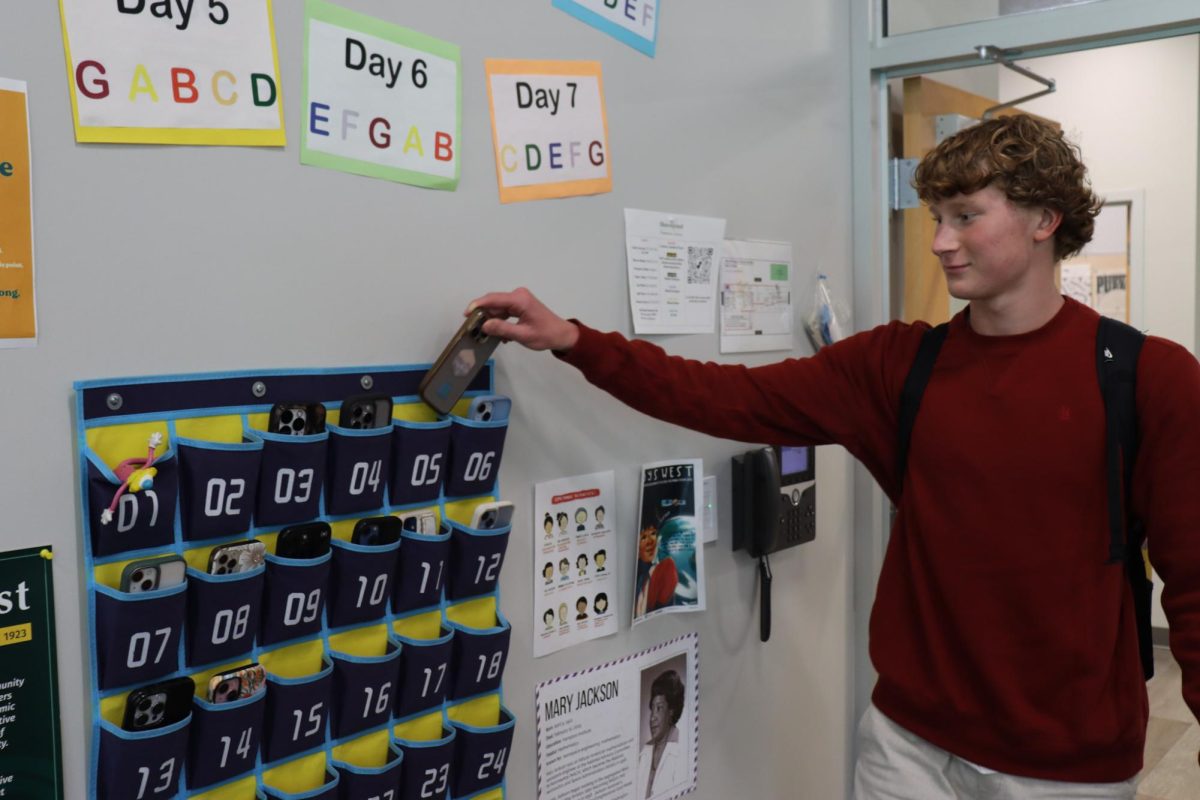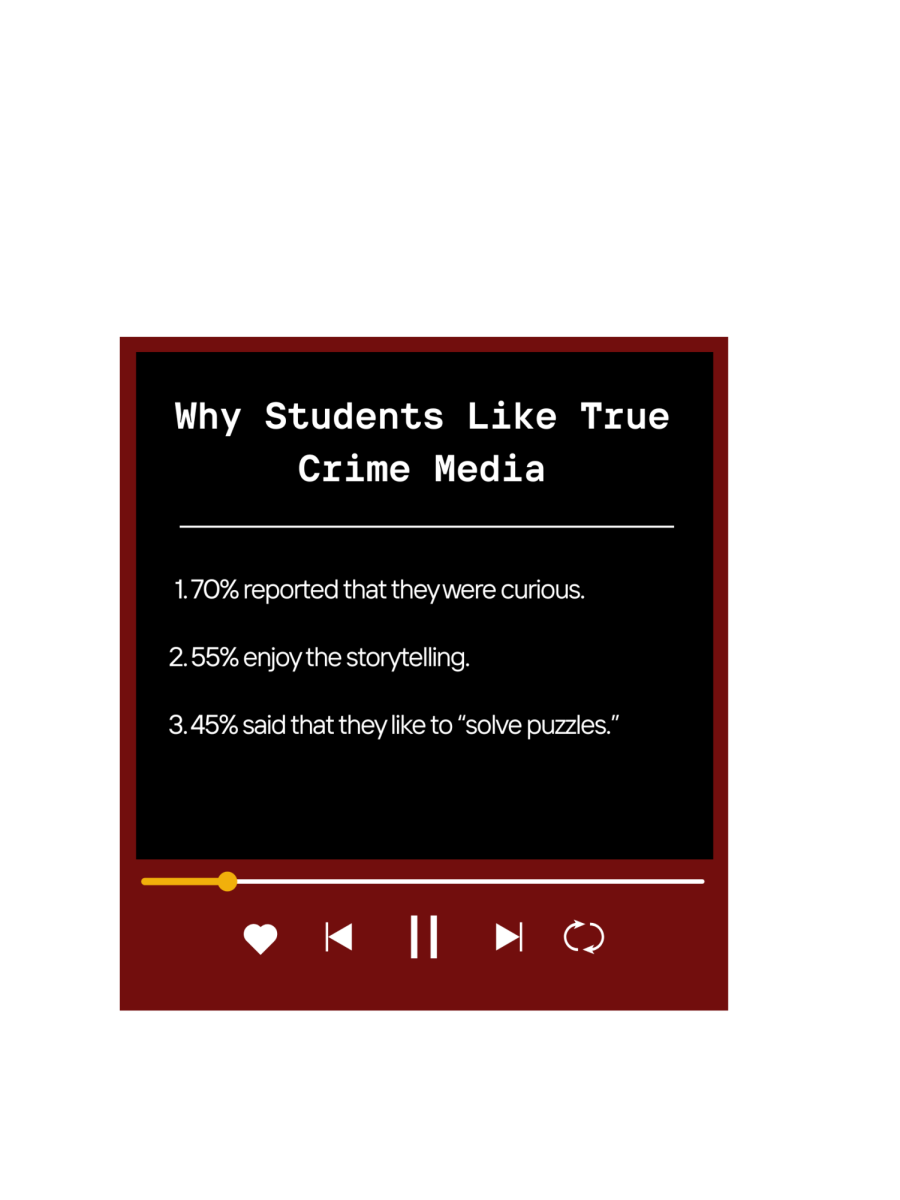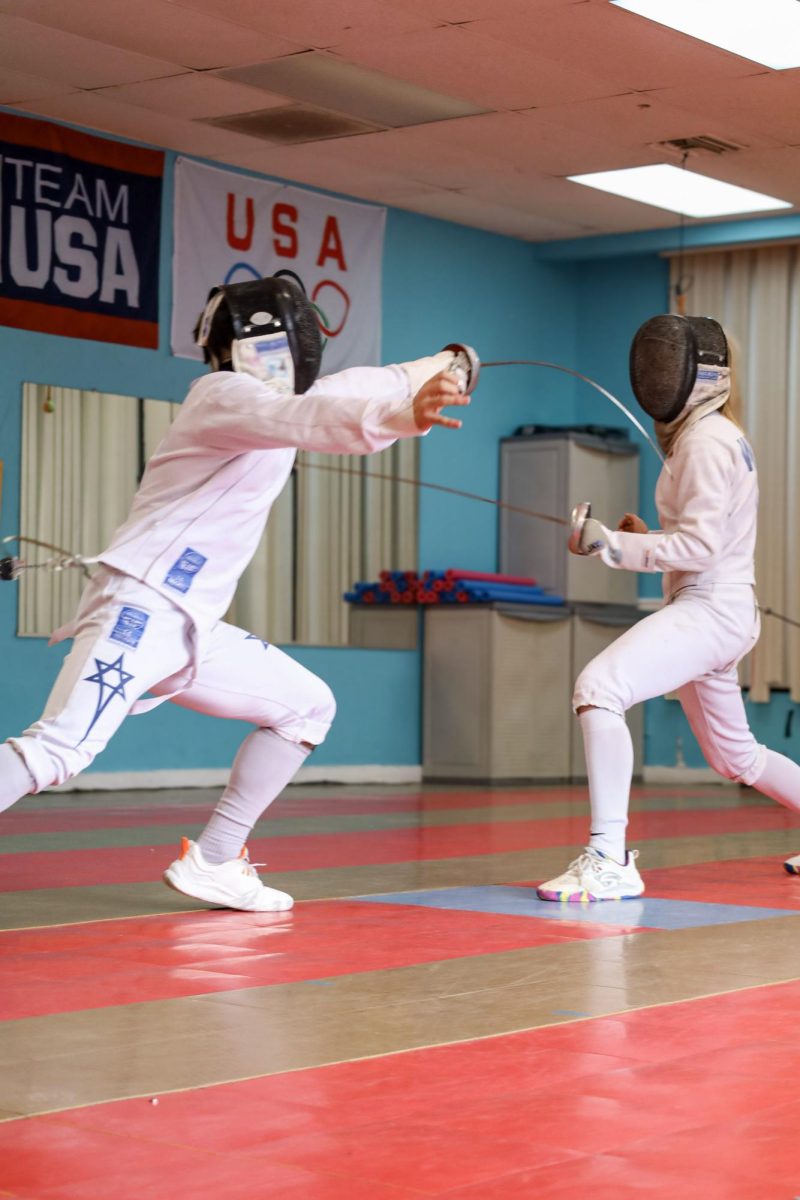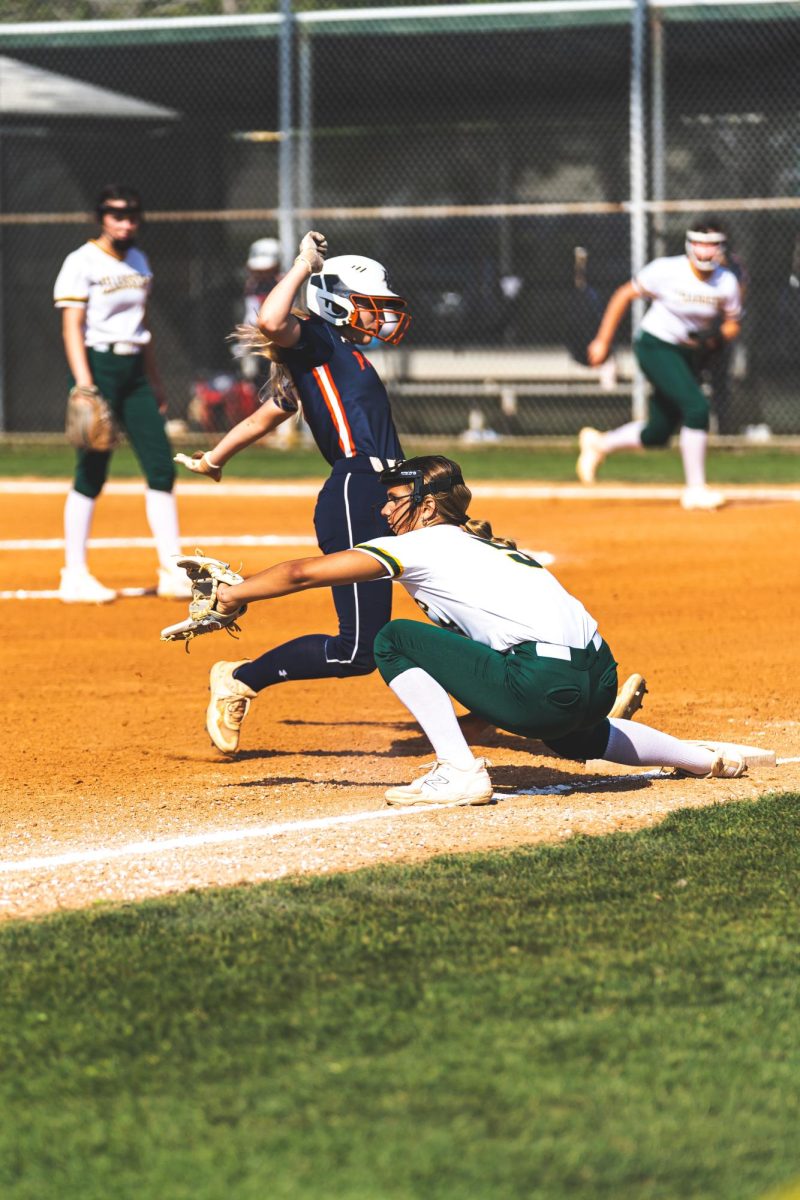As this school year commenced, to a greater degree than ever before, students across the nation and at Shorecrest were forced to put their beloved cellphones away for the school day, in bags, bins, and baskets.
Eighteen U.S. states now have some version of a phone ban. States like Florida and Georgia restrict K-8 cellphone use, while states like Texas, Louisiana, Arkansas, New York and Virginia are taking a more serious approach, imposing a school-day ban for all grade levels.
With these new laws, Shorecrest has returned to strictly enforcing its 2019 cellphone policy. As it stands, Shorecrest’s Upper School policy states that cellphones must remain in the phone holders or bins during class times. Students are free to carry and use their phones during all other times of the school day. Previously, not every class enforced the “cell hotels.” However, this year, all classrooms are more consistently following the policy.

“[Last year] we could keep them out on our desks [in some classes], and if we needed to, we could just say ‘I need to text someone’ and just take it out and text … now we have to actually put [our phones] on the wall or in the little box, and they don’t even let us go [get our phones] and text,” said junior Mia Hartig.
Across the country, in private and public schools and between both political parties, concerns about phones have stayed relatively consistent. “Anytime you have a bill that’s passed in California and Florida, you know you’re probably onto something that’s pretty popular,” Georgia state representative Scott Hilton said in August.
This consistency, rare in today’s political landscape, comes down to how phones wimpact learning environments. “[The faculty] know that there’s been a lot of studies about excessive social media use and how that’s not good for them, for the mental well-being of kids…We want our students to be engaged with the class. We want them to participate. We want to improve those social skills,” Head of Upper School Erich Schneider said.
One study by the National Library of Medicine found that students who kept their phones at the front of the room, away from their view, performed better on a memory task than those who kept their phones at their desks. In line with this study, teachers and faculty have found that across the country, students are more focused, less distracted and less likely to break rules since the phone bans.
“From my perspective, [phones are] a level of social need, bordering on addiction, if not flat out addiction… The kind of social addiction that it’s healthy that you try to wean yourself off of,” US Arts and Humanities Teacher and Visual Arts Department Chair Charla Gaglio said, who has been careful to enforce phone restrictions this year.
While limiting distractions and providing a space where students can be free of their addictions has benefits, banning phones entirely could create safety concerns.
Last September, when two students and teachers were killed at a Georgia school, parents reported that they were only made aware of the incident through text messages from their children. It’s difficult to support bans when students in schools may be put in situations where having their phones could save their lives.
In addition, many student-athletes being recruited by colleges require access to their phones. Former Shorecrest student Bobbie Struss is currently going through the softball recruiting process. “[My friends in Texas] are just starting school. They’re getting calls from coaches, [so] do they just not go to school that day? Some of them did take the school day off just because they wouldn’t have their phones,” Struss said. While this scenario might seem uncommon, students still face issues like these, some of which don’t have an easy fix.
Shorecrest’s policy, however, only limits phone usage during class, allowing students to always have access to their phones but not be distracted by them.
“We want [our students] to understand that we recognize that in this world today, those phones are a big part of everybody’s life, including the adults,” Schneider said. “But we think it’s important for you guys to learn how to manage them as a tool and know when it’s appropriate to use them and when it’s not.”

































![Thespians pose on a staircase at the District IV Thespian Festival. [Front to back] Luca Baker, Maddison Cirino, Tanyiah Ellison, Alex Lewis, Summer Farkas, Jill Marcus, Ella Mathews, Sanjay Sinha, Isabella Jank, Sofia Lee, Boston Littlepage-Santana, Sally Keane, Tyler Biggar, Tanner Johnson, Jasper Hallock-Wishner, Remy de Paris, Alex Jank, Kaelie Dieter, and Daniel Cooper. Photo by Michael McCarthy.](https://spschronicle.org/wp-content/uploads/2024/12/image1-900x1200.jpg)















